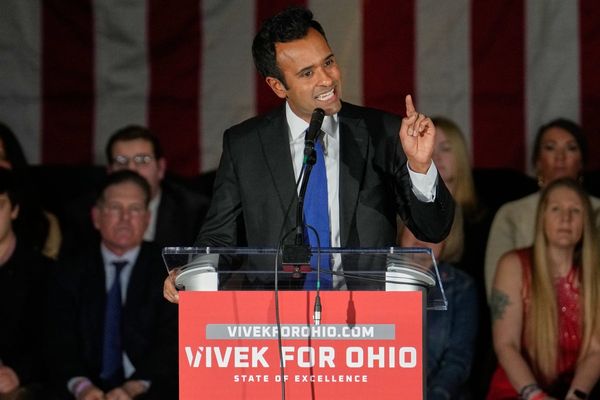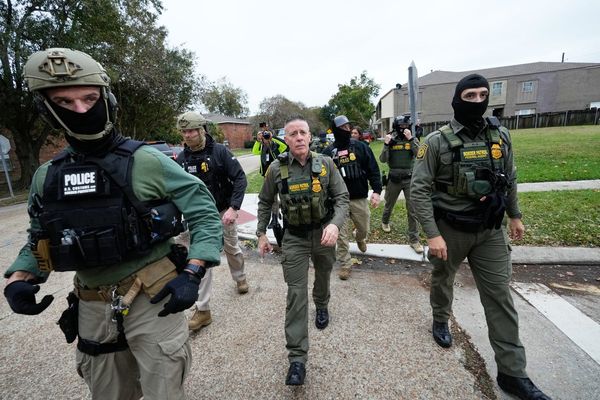
When Carrie Donaldson and Luis Casanova first bought their historic property in rural Tatura, 20 minutes south-west of Shepparton, it was in a state of disrepair. “It was basically falling down,” Donaldson says.
The couple spent two years renovating the period home and transforming it into a short-term accommodation space. Known as the Storekeeper’s House, the rental has fast become one of Tatura’s most coveted accommodation spaces.
“From the outset we’ve wanted to support this community and not be a detriment,” says Donaldson, whose ancestors settled in Tatura 150 years ago.
“Our vision and goal was to make Tatura a tourism destination.”
In September, the Victorian government announced a new 7.5% levy on all short-term rentals to be introduced from 2025.
The levy on platforms such as Airbnb and Stayz is expected to raise about $70m annually to fund social and affordable housing.
Donaldson says while she is sympathetic to those affected by the housing crisis and understands the need to regulate some properties, particularly in high-tourism areas, a blanket 7.5% tax is “no easy fix”.
Donaldson says her business is designed in part to respond to a local government study that identified a need for higher-end self-contained accommodation in the region.
“A lot of the time, especially outside of peak season, we’re hosting contracting and construction crews, visiting professionals, we’ve hosted flood victims and now the consumers are going to need to pay that tax.”
Will it alleviate the housing crisis?
In 2021, Vivienne Kehr and her two-year-old son were forced to leave their Ocean Grove home.
“I was basically on the street with a toddler,” she says. “It was pretty crazy.”
After a year living in a friend’s dilapidated shed in Torquay, Kehr spent several months searching for an appropriate rental property along with two other single mothers.

With her friends and work in Torquay, her hope was to live in the seaside town.
“But I didn’t have a rental history, I’m not an Australian citizen and the properties were so expensive,” Kehr says. “In the end, it was better to team up with another mum”
There are more than 1,000 places in Torquay listed on Airbnb. According to the Real Estate Institute of Victoria, there are just under 6,000 dwellings in total in the town.
As a chef, Kehr says the housing shortage is also affecting the hospitality industry, with eateries unable to source local staff and workers unwilling to commute due to the rising cost of fuel.
Kehr continues to commute to Torquay three times a week for work. She says while the new levy is a good initial first step to address the housing crisis, she doubts it will have much impact in Torquay, where accommodation operators will simply increase their prices.
“I don’t think people who holiday in Torquay are going to have a problem,” she says.

According to the REIV, vacancy rates in regional Victoria fell to 2.2% over the month of August.
The Rural Doctors Association of Australia’s chief executive, Peta Rutherford, says locums in particular struggle to find rentals in regional areas and will often stay in motels or hospital accommodation.
She says freeing up the housing market would be a “good thing for medical recruitment and retention”.
“It isn’t only doctors, it’s nurses, midwives and many other key professionals wanting to relocate – certainly in the first year or two will likely want to rent rather than build or buy,” Rutherford says.
The Australian Education Union’s Victorian branch president, Meredith Peace, says teachers are also affected by a lack of appropriate housing in regional and rural areas.
“The challenge of finding accommodation means that increasing numbers of staff have to commute significant distances, rather than being able to live within the community or area they work in,” she says.
Tax ‘not the panacea’
According to Donaldson, she and her husband transformed a property that otherwise would not even have been fit for use.
“We invested a significant amount of time restoring a heritage property nobody was willing to look at,” she says. “We did not take a house away from the rental market. I saw it as an opportunity to promote a region.”
As well as the Storekeeper’s House, the couple own another short-term accommodation space in Shepparton.
Living on 16 hectares (40 acres) of farmland in Molka, 30 minutes south of Shepparton in the Strathbogie region, they hope to establish a farm stay on their acreage. They say the additional income streams from short-term accommodation will help.
“Hosting is not easy and, in the current climate, we’re not making high dollars anyway,” Donaldson says.
“I don’t believe [the housing shortage] happened because Airbnb opened up. It was because of a lack of advanced planning and the cost of living having a huge impact on housing affordability.
“Applying a 7.5% tax is not the panacea.”
Dellaram Vreeland is a freelance journalist based in Ballarat, Victoria







